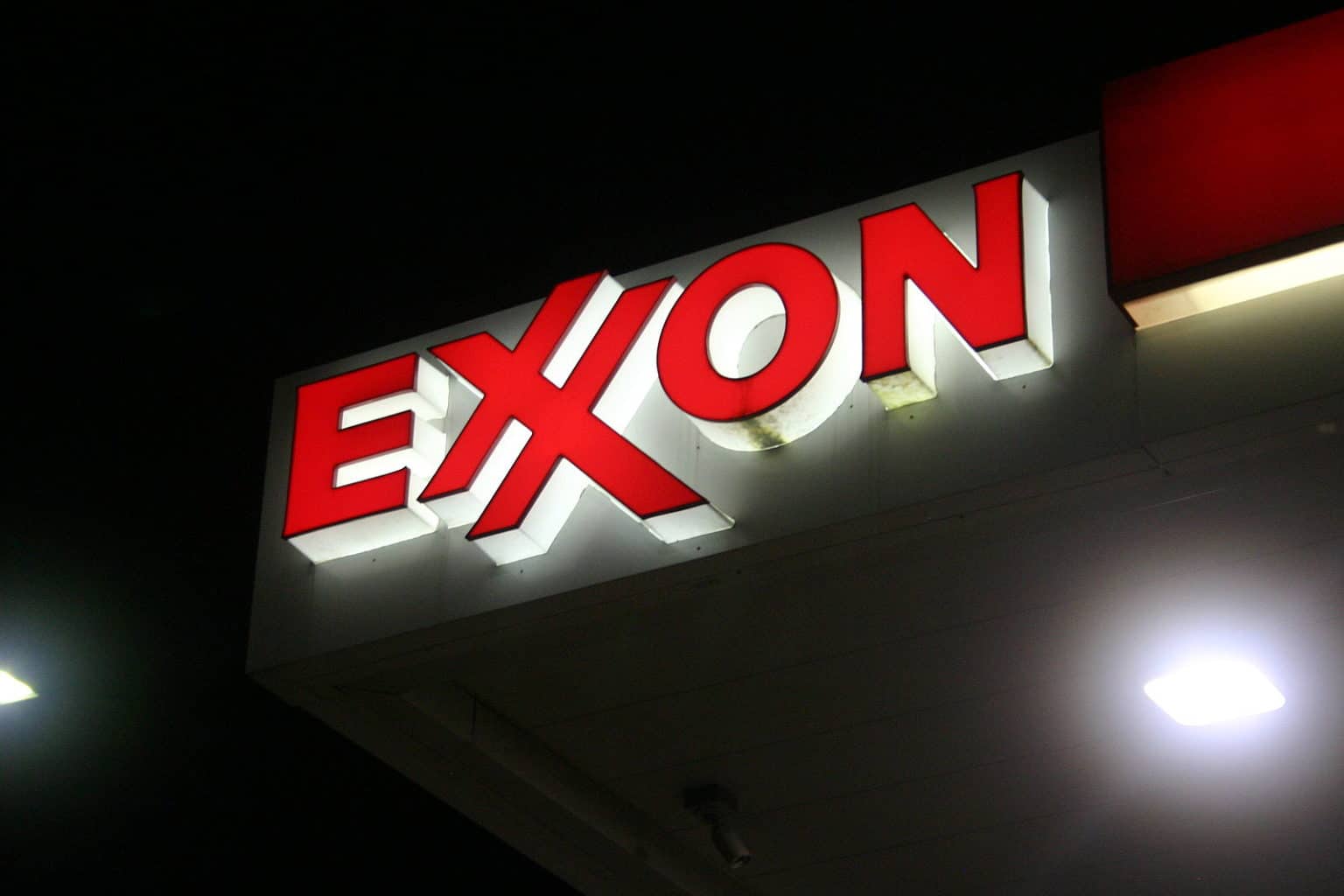This is the second part of DeSmog UK’s series mapping Exxon’s ties to EU think tanks and lobby groups. Here we explore what happened to Exxon’s EU think tank ties after it pledged to stop funding climate denial.
Pressure is mounting on ExxonMobil to explain why the oil giant funded climate denial around the world years after its own scientists established global warming was real.
Exxon has a long history of funding climate denial and last September it was revealed that it did so despite a full scientific knowledge about the impacts of manmade climate change in the 1970s’ and ‘80s.
This prompted the New York Attorney General to subpoena ExxonMobil to “determine whether the company lied to the public about the risks of climate change or to investors about how those risks might hurt the oil business.” A similar investigation has also been launched in California.
These revelations tell us what Exxon knew. The investigations in New York and California are asking ‘what did Exxon do?’
Exxon in the EU
So, while the oil giant has been getting a lot of heat in the U.S. for funding climate denial, this DeSmog UK investigation takes these questions across the Atlantic, and asks: what has ExxonMobil been up to in Europe?
The past 10 years are pretty murky when it comes to deciphering ExxonMobil’s climate denial activities in Europe.
In 2007, the oil giant pledged to stop funding climate denial groups in response to pressure from shareholder activists. However, eight years later the company was found to have given more than $2.3m (£1.7m) to an American lobbying group and members of Congress that deny climate change and block efforts to tackle the issue.
It begs the question: has ExxonMobil been up to the same tricks in Europe?
2005 Climate Denial Links
The last time a full analysis of Exxon’s ties to European climate denial think tanks was done was in 2006 by transparency watchdogs Corporate Europe Observatory, the year before Exxon pledged to stop funding such groups.
In 2005, Exxon’s worldwide giving report shows it funded the climate change programs for the radical free market Brussels think tank, Centre for The New Europe, and the UK-based climate sceptic International Policy Network (IPN). Exxon gave £34,376 ($50,000) and £89,377 ($130,000) respectively.
A neoliberal think tank called The Lisbon Council also listed ExxonMobil as a donor that year. Exxon was also a member of CEPS, EPC and Friends of Europe back in 2005.
Other Brussels-based climate-sceptic think tanks Exxon is believed to have given money to at the time include the European Enterprise Institute, the Institut Economique Molinari (which had close ties to the Centre for The New Europe) and the International Council for Capital Formation – a subsidiary of the American Council for Capital Formation, a prominent opponent of the Kyoto Protocol.
In previous years Corporate Europe Observatory reports that Exxon’s European expenses also went to the umbrella free market think tank The Stockholm Network (previous members included the Institute of Economic Affairs and the IPN), and online free-market magazine TCSDaily.com (formerly Tech Central Station).
But it seems that since 2006 many of these think tanks have shut down.
The Centre for The New Europe has shut down while the Stockholm Network seems, at the very least, to have gone out of public view. It no longer has a website, yet a 2014 Forbes article (linking to the now-broken website) cites it as one of the largest ‘market-oriented networks’ in Europe. Meanwhile, the International Council for Capital Formation doesn’t seem to have been active since 2006 although its website is still accessible unlike the other two.
Exxon and the IPN
Perhaps the most memorable of these think tanks, however, is the story behind the climate sceptic IPN, which was founded in 2001 by Julian Morris and Roger Bate of the British free-market think tank the Institute of Economic Affairs (IEA).
In the run-up to its formation, Bate and Morris had met with Fred Smith of the U.S. Competitive Enterprise Institute (which, by 2001, had become Exxon’s biggest beneficiary) to discuss how to challenge the green agenda. Read DeSmog UK’s post on the IPN’s formation here.
Between 2003 and 2006, IPN pocketed almost £275,008 ($400,000) from Exxon. In 2006 alone, the oil giant donated £65,314 ($95,000) to the IPN. But any funding after this was in serious jeopardy after the oil company’s pledge to stop funding climate denial.
Ultimately, IPN’s controversial ties to Exxon – and the tobacco industry – played a role in its downfall. The think tank closed its doors in 2011. You can read DeSmog UK’s account of this here.
It’s worth noting that Benny Peiser, director of Lord Lawson’s climate denial charity the Global Warming Policy Foundation (GWPF), collaborated with the IPN prior to joining the GWPF (which was established in 2009).
In January 2005, Peiser and a small group of climate deniers met at the Royal Institute in London in what the Guardian has described as the “first dedicated meeting of climate sceptics”.
The next day a Washington D.C. lawyer named Chris Horner and senior fellow of the Competitive Enterprise Institute (CEI) set out plans for a new climate sceptic European policy think tank.
However, his plans were revealed in a leaked letter where Horner described Europe as an “opportunity” adding that it “would be like Neil Armstrong, it’s a developing untapped frontier” and that “US companies need someone they can trust, and it’s just a den of thieves over there”.
It’s not known for sure what came of these plans. Did Horner inspire the creation of the GWPF? DeSmog UK takes a look here.
Horner is currently listed at the Director of External Relations for the policy counsel of the European Enterprise Institute (CEI’s EU counterpart) – which, according to Corporate Europe Observatory, received funding from Exxon in 2005.
So what about the Lisbon Council and TCSDaily.com?
The last year that Exxon is listed as a donor of the Lisbon Council was 2006. However, the Council has received money from other oil giants since 2006 – Shell from 2006-2009 and Schlumberger in 2007.
TCSDaily.com, which formed part of a Washington D.C.-based consulting and lobby firm, was sold in 2006 to its editor Nick Schulz. A web search for TCSDaily.com brings you to a site hosted by the American Enterprise Institute, one of the most influential think tanks in the U.S. Among the website’s authors is Kendra Okonski, the wife of Julian Morris and member of the IPN. Previously Okonski worked for the CEI.
Part three in DeSmog UK’s Exxon in Europe series looks at the various Brussels lobby groups the oil giant is a member of.
Image credit: Brian Katt/Wikipedia/CC BY–SA 3.0
Subscribe to our newsletter
Stay up to date with DeSmog news and alerts







